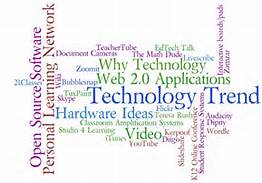 Logicalis US Fifth Annual Tech Trends Reveals What CIOs, CTOs are Talking about Most
Logicalis US Fifth Annual Tech Trends Reveals What CIOs, CTOs are Talking about Most
What technologies and trends do IT experts have on their minds for 2014? Logicalis US, an international IT solutions and managed services provider conducted its fifth annual “Top 10 Tech Trends to Watch” study to find out. The annual study monitors online conversations between CIOs, CTOs, IT staffers, industry analysts and reporters to determine the top technology trends and predictions for the coming year.
“There’s no better way to develop solutions and services for our customers than to listen to what they are saying about the trends they are most interested in for the coming year,” says Lisa Dreher, Vice President, Marketing, Logicalis US. “There has been a lot of buzz lately about the value of social media and how corporations can use social strategies to their advantage. Tapping into these conversations on LinkedIn, Twitter, blogs, forums, IT news sites and other social media channels is one of the best ways we have found to keep a finger on the pulse of what’s most important to our customers and tailor our sales and marketing strategies accordingly.”
10 Top Tech Trends to Watch in 2014
- Tech Decisions: Cloud computing and BYOD have significantly changed the role of technology within enterprise organizations over the past year. An increasing number of tech decisions are being made by sales, marketing and line-of-business managers, leaving CIOs and other IT professionals with concerns about maintaining control of corporate infrastructures, data and security as well as their own relevance within the organization.
- Big Data. Corporations have long realized the value of gathering and analyzing data to foresee trends and react quickly to changes within key customer sets; in the coming year, enterprise organizations will turn to “big data” solutions like SAP HANA as they rely even more heavily on collecting, storing, managing, filtering and deriving meaningful insights from the data they collect.
- Healthcare IT (HIT). The healthcare industry is at the precipice of a much needed IT transformation. In particular, significant investments will continue around the Affordable Care Act and the “meaningful use” mandates in the American Recovery and Reinvestment Act (ARRA) for electronic health records and patient portals. In addition, telemedicine, e-prescribing, and healthcare analytics will all grow in importance as healthcare CIOs search for ways to engage patients, providers and payers in more efficient communications that result in better outcomes.
- The Internet of Things. Smart homes, smart cars, smart watches, smart TVs – the Internet of everything will proliferate the market in the coming year. Everything conceivable – from appliances to light bulbs – will be Internet-ready, and consumers will control their lives via mobile devices. This means BYOD will become significantly more important and more complex as anything and everything becomes a “device” for Internet connectivity.
- As-A-Service. With belt-tightening measures firmly in place, enterprise organizations that want to remain at the forefront of technology face a tremendous dilemma which can be summed up in a simple question: “Cap-ex or op-ex?” In the coming year, infrastructure restrictions will be less of a barrier to business growth as the enterprise C-suite embraces the “as-a-service” concept and understands that it’s not the technology itself that transforms the business; it’s the way the business accesses and uses that technology that is transformative.
- Trust, Security and Privacy. In order to enjoy more personalized experiences with technology, consumers will become more willing to provide and share identifying information. As a result, security will become a more significant focus for technology developers. Cloud-based applications and physical devices will take important steps in the coming year to protect consumers’ identities and safeguard their personal information, lending a helping hand to technology professionals who already have their hands full working on internal security policies and disaster recovery/business continuity strategies.
- Mobility on the Move. As mobile applications replace traditional websites and software products, the combination of mobile and cloud will grow in significance. Mobile devices will become even more powerful and will be able to handle increasingly complex applications. The proliferation of the cloud allows for collaboration, personalization and mobile access to a large amount of data and a wide variety of products.
- Advanced Infrastructure. Tech departments will trend toward the new, branching into advanced products like 3D printing that can be used in a variety of applications and industries and hold the potential to change the way things are produced or manufactured. This means a renewed focus on how these new technologies will be managed and supported, something already weighing heavily on the minds of enterprise IT professionals.
- Hybrids. No surprises here: Hybrid clouds will emerge as the winners in private vs. public cloud debates.
- IaaS: As the “as-a-service” movement takes root, the infrastructure-as-a-service or platform-as-a-service market will grow tremendously, particularly among software developers who want to speed application development, QA and solution deployment.
